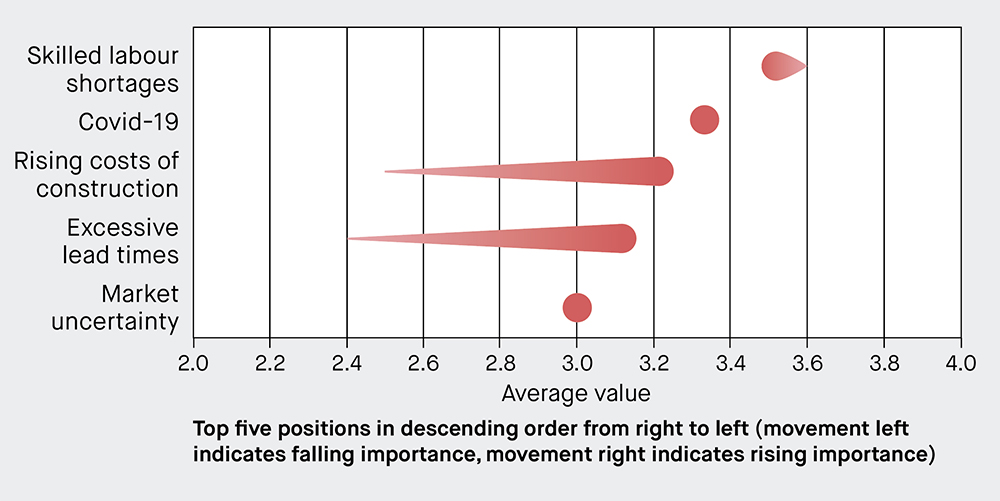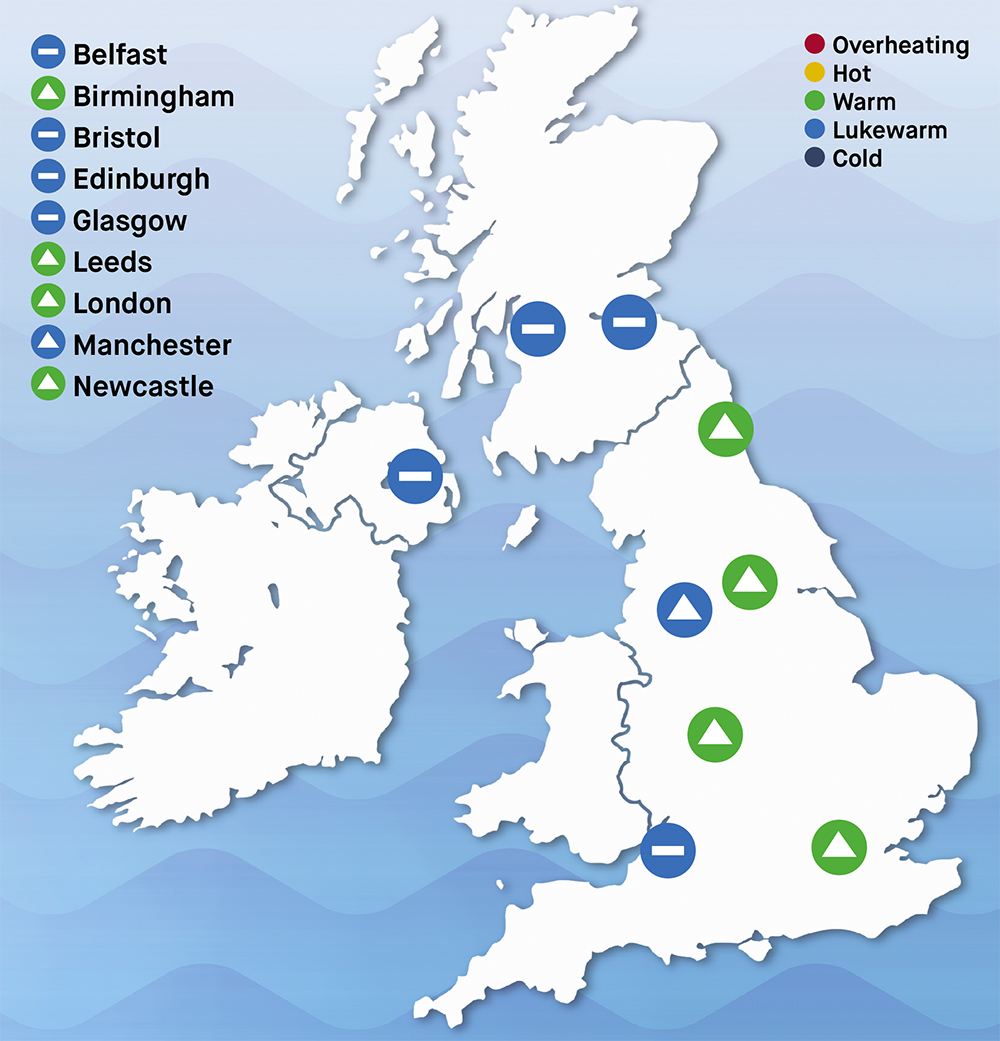Brexit has added an extra dimension to covid-19 cost pressures, as demand collides with supply chain disruption, writes Kris Hudson.
The UK economy is on high alert for inflationary pressure – and construction is particularly vulnerable. The industry is one of the pillars the government is hoping will drive the economic recovery, but the increased demand is colliding with global supply chain disruption and labour shortages.
The pressure is borne out in the data. Turner & Townsend’s recent International Construction Market Survey (ICMS) found that ‘rising construction costs’ has moved from ninth to third position of key industry challenges since the last report, with ‘excessive lead times’ moving from 13th to fourth.
The disruption from covid-19 is felt around the globe, but Brexit has added an extra dimension in the UK. Costs are rising across the country. London ranks as the eighth most expensive place to build in the world, with Bristol in 16th place and Birmingham at 18th. Manchester (24th), Newcastle (27th), Edinburgh (28th) and Glasgow (30th) come close behind – still above other key contenders such as Singapore.
Top five key supply chain challenges in the UK, 2021 vs 2020

On the demand side, the UK market is warming up, fired by government interest in levelling up and investing in infrastructure. UK tendering conditions are described as ‘lukewarm’ to ‘warm’ – but with key regions set to warm up in the coming months and years. The ICMS shows that Birmingham, Leeds, London and Newcastle are predicted to move from ‘warm’ tendering conditions to ‘hot’, while Manchester is expected to increase from ‘lukewarm’ to ‘warm’.
Defining market temperature in UK city regions

These conditions, combined with labour and material pressures, lead Turner & Townsend to forecast the UK becoming less competitive on costs compared to mainland Europe. Average UK construction sector costs were expected to rise by 3% in 2022 and 4% in 2023. Europe is only forecast to see 2.5% in 2022 and 2.4% in 2023.
Inflationary pressures could yet ease but would rely on a combination of supply-side constraints normalising and a tapering-off of demand – potentially even driven by viability challenges caused by price escalation. In either case, in a pressured market, it is important to manage individual cost pressures to remain competitive.
Proactive organisations are developing new supply chain strategies and agreeing enlightened terms with suppliers. Digital tools can help make informed procurement decisions and targeted investment in productivity improvements can enhance efficiency – contributing towards offsetting inflationary pressures. Above all, the industry must meet inflationary challenges together, working collaboratively to alleviate ongoing risks.
Kris Hudson is an economist and associate director at Turner & Townsend.











